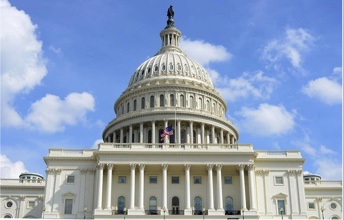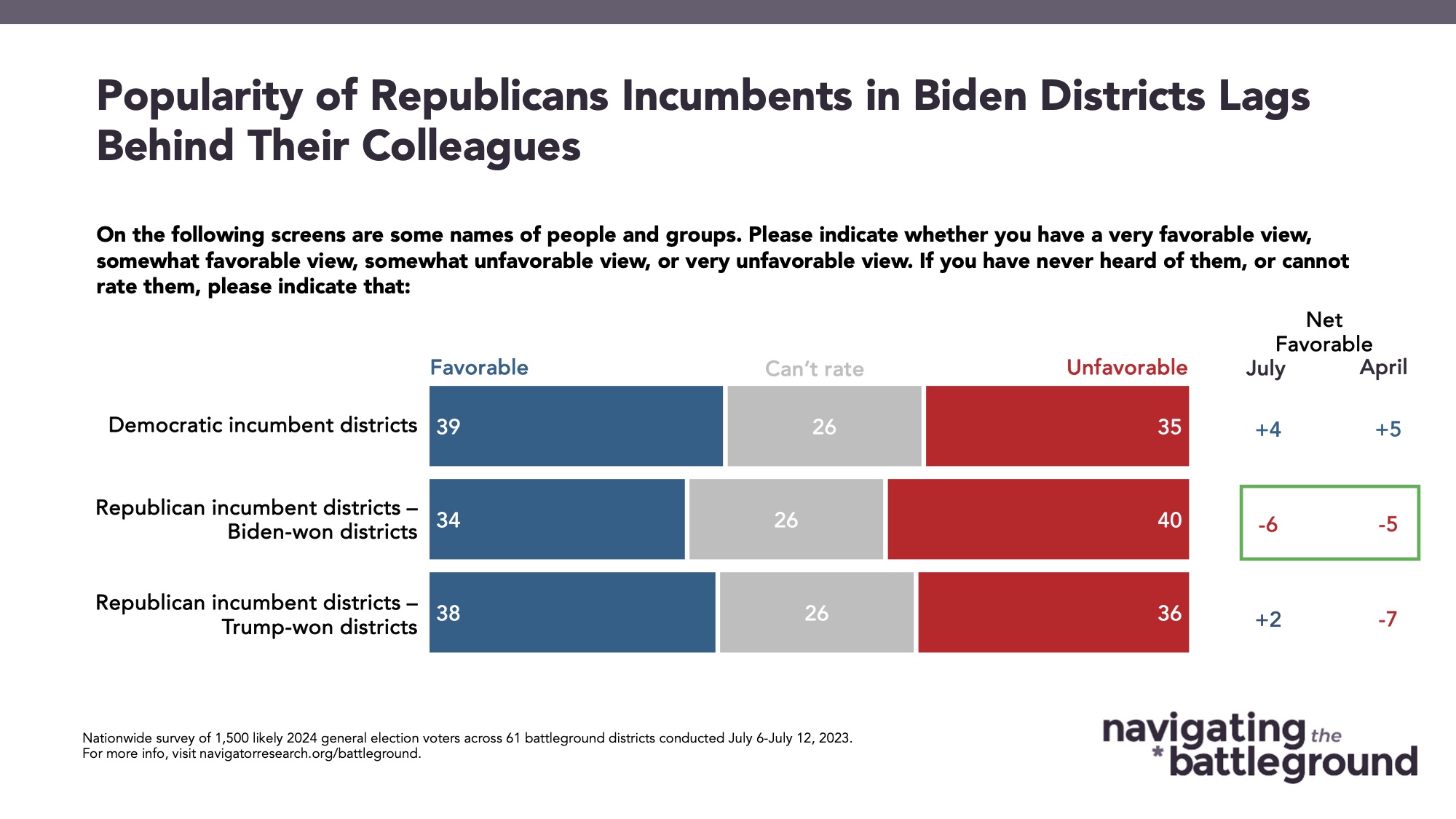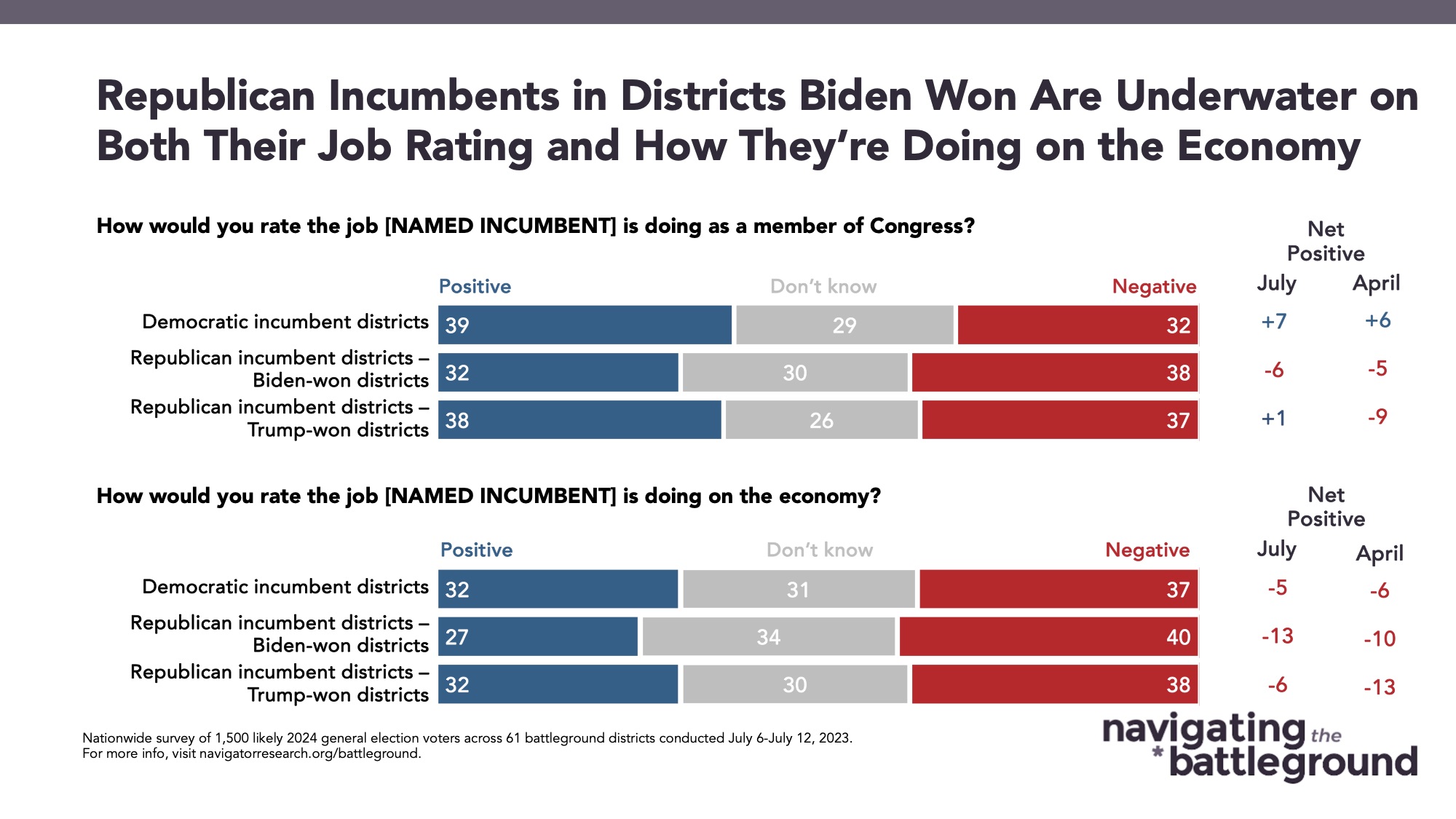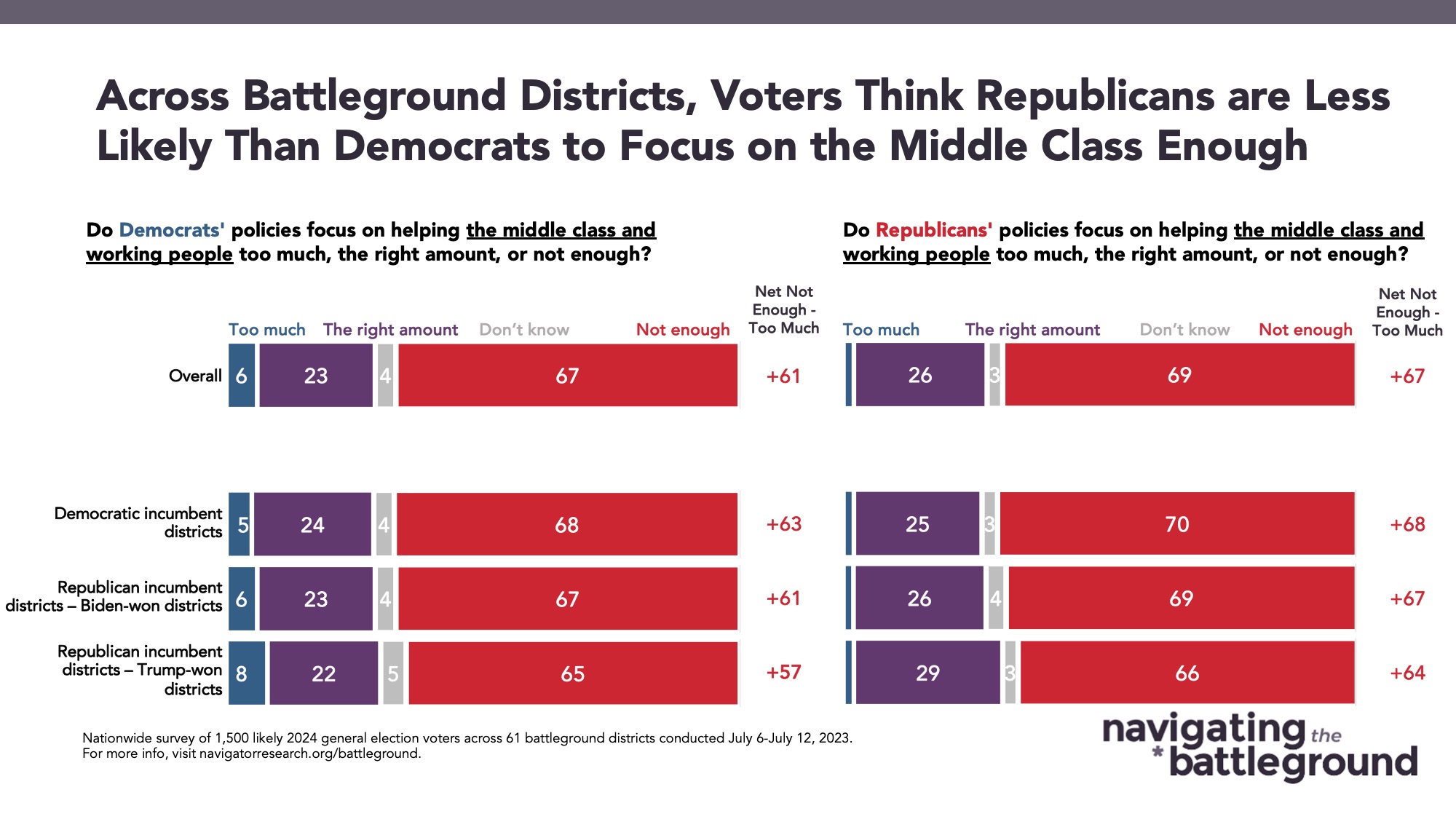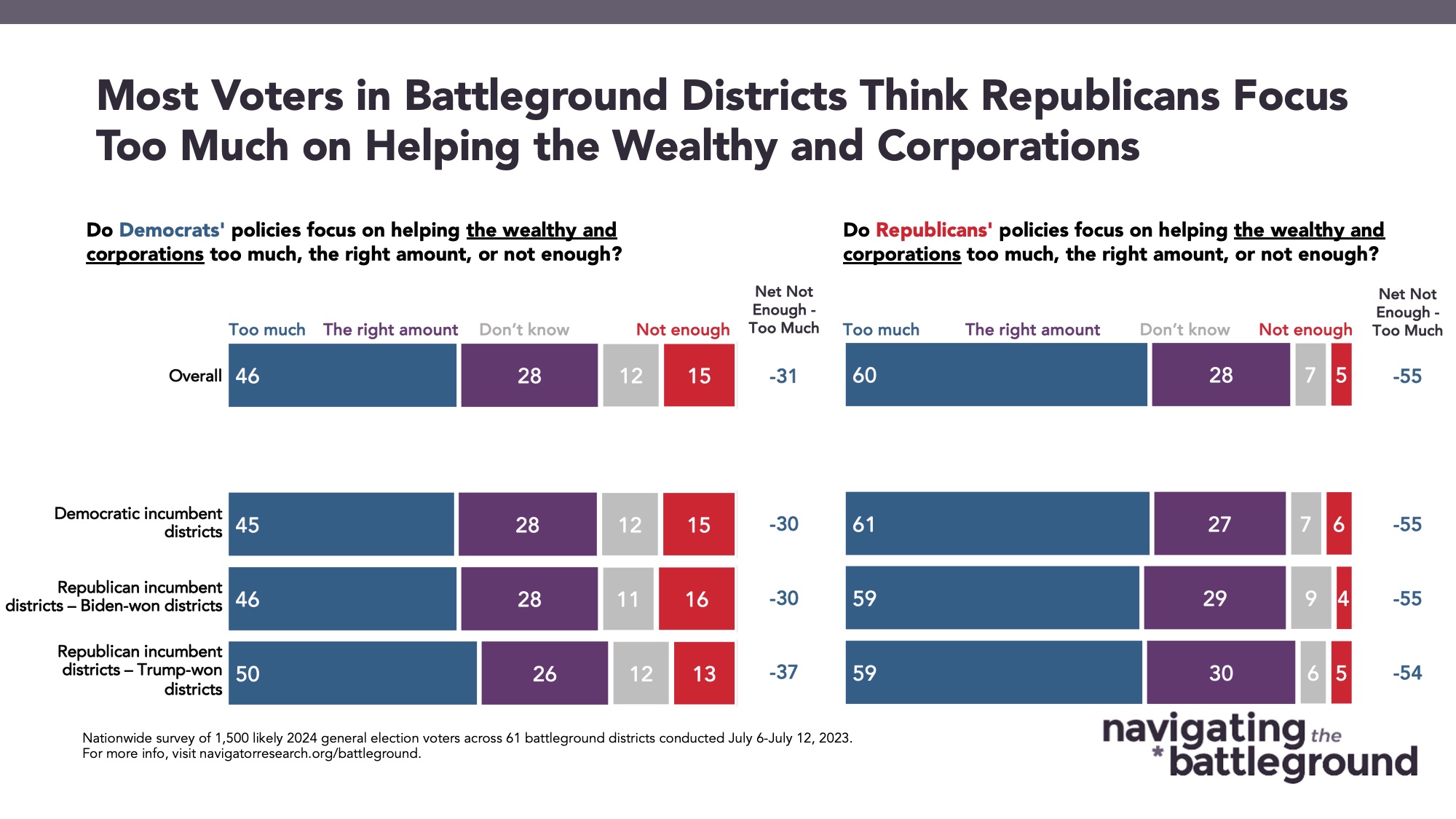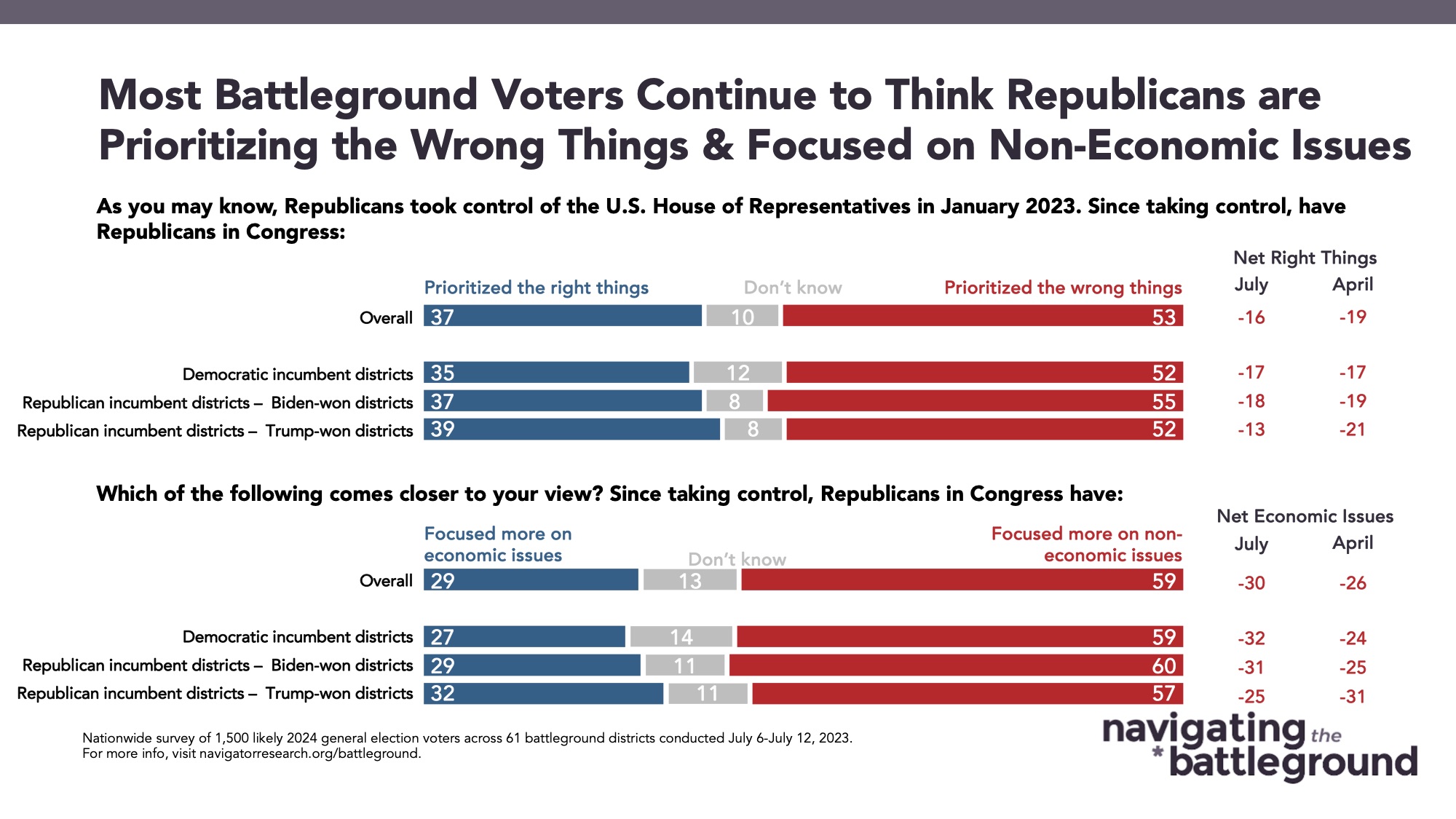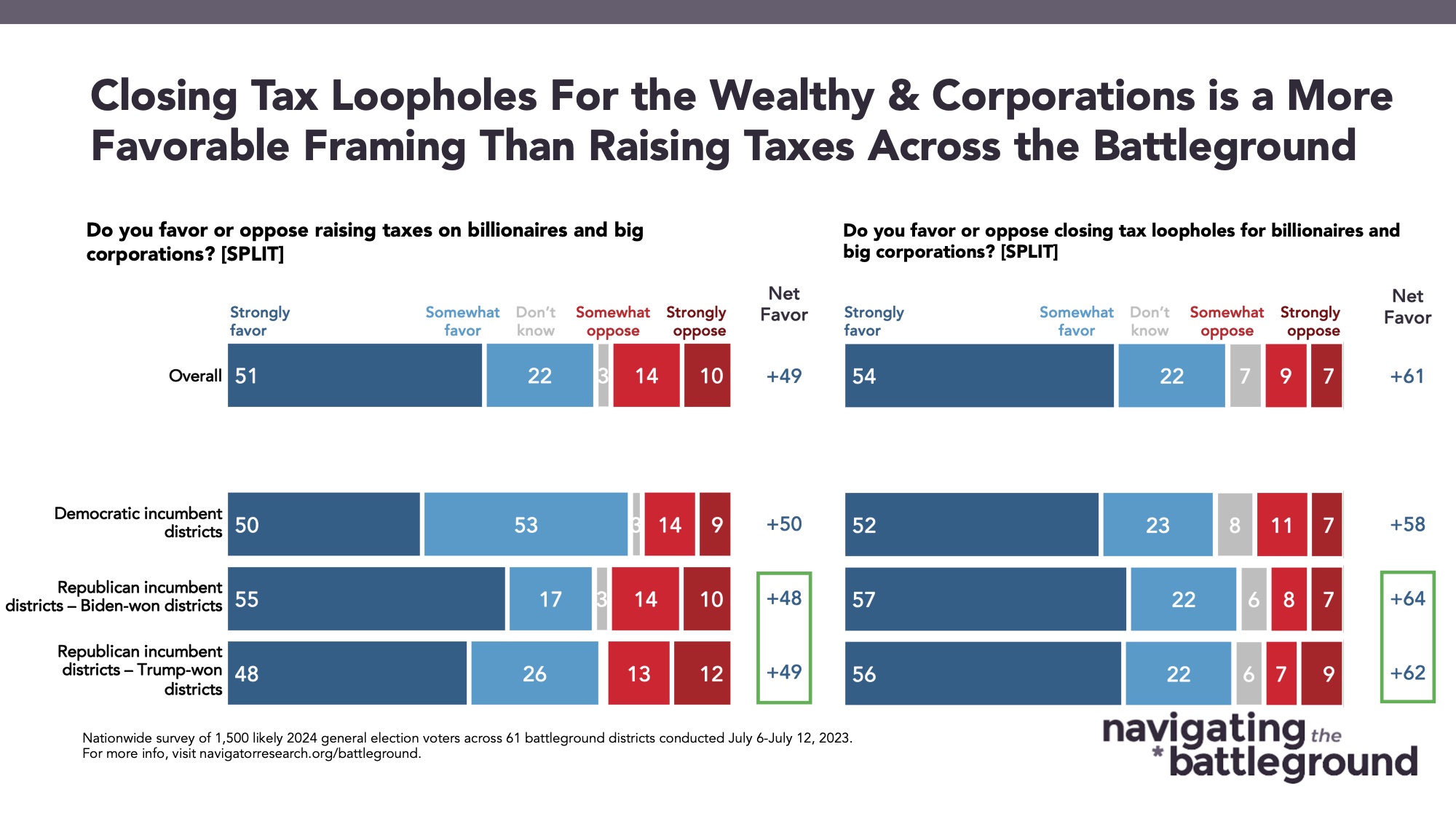Party Perception by Battleground District Categorization
This Navigator Research report contains polling data on party perceptions by different types of districts in the battleground (Trump-won Republican incumbent districts, Biden-won Republican incumbent districts, and marginal Democratic districts), including views of the economy and the political parties, as well as which policies are most supported when it comes to the economy.
Democratic incumbents enjoy higher favorability than their Republican counterparts in the battleground.
Democratic incumbents enjoy the highest favorability ratings by district type with a net +4 point favorability rating among their constituents (39 percent favorable – 35 percent unfavorable). In Republican-held districts that Biden won in 2020, constituents are unfavorable to their Republican incumbents by net -6 (34 percent favorable – 40 percent unfavorable), and in Republican-held districts that Trump won, Republican incumbents receive more positive ratings, but are still underwater among their constituents (net -2; 38 percent favorable – 36 percent unfavorable).
- Similar trends hold on job approval and economic approval between district types: on job approval, Democratic incumbents enjoy a net 7-point overall approval rating among battleground constituents (39 percent approve – 32 percent disapprove). Republican incumbents, specifically those in Biden-won districts, do much worse on this metric (net -6; 32 percent approve – 38 percent disapprove) while constituents are split on approval for Republican incumbents in Trump-won districts (net -+1; 38 percent approve – 37 percent disapprove).
- While all incumbents are underwater on their handling of the economy, Democratic incumbents are viewed more favorably than their counterparts in both Republican incumbent district types. Democratic incumbents are a net 5 points underwater (32 percent approve – 37 percent disapprove) among their constituents on economic job approval while Republicans incumbents in Biden-won battleground districts are underwater by 13 points (27 percent approve – 40 percent disapprove) and Republican incumbents in Trump-won districts are net negative by 6 points (32 percent approve – 38 percent disapprove).
Across battleground district types, constituents want to see incumbents prioritizing the middle class.
When asked to choose which statements were closer to their economic view, 65 percent of battleground voters say that economic policies that center middle class success are the drivers of economic growth, compared to 31 percent who say they prefer a more top-down, business-centric approach that cuts taxes on businesses on entrepreneurs. This is true across district type as three in five constituents across the battleground prefer middle-class centric solutions for economic growth.
- Both Democrats and Republicans across district types are viewed as not focusing enough on the middle class. Two in three battleground constituents believe Democrats are not focused enough on the middle class (67 percent), while a similar share say the same about Republicans (69 percent). There is little change in these metrics when digging deeper into specific district types: in Democratic incumbent districts, 68 percent of constituents believe that Democrats do not do enough to help the middle class; in Trump-won Republican incumbent districts, 66 percent believe that Republicans do not do enough to help the middle class.
- There is a larger gap in how constituents view whether the parties are focused too much on helping the wealthy and corporations: while 45 percent of battleground constituents in Democratic incumbent districts believe that Democrats focus on helping the wealthy and corporations too much, nearly three in five constituents say the same about Republicans in Republican-held districts (59 percent).
- Constituents in Republican-incumbent districts are negative overall on Republican priorities since taking control of the House of Representatives in January. By an 18-point margin, constituents in Biden-won Republican incumbent districts believe that Republicans have prioritized the wrong things since taking control of the House (37 percent right priorities – 55 percent wrong priorities). By a 13-point margin, constituents in Trump-won Republican incumbent districts say the same (39 percent right priorities – 52 percent wrong priorities).
Across district types, constituents prioritize tax fairness and closing loopholes for billionaires and big corporations.
By a 49-point margin, battleground constituents favor raising taxes on billionaires and big corporations (73 percent favor – 24 percent oppose). This margin is consistent when looking across district types. There are further increases in net support when asking battleground constituents if they favor closing tax loopholes for billionaires and big corporations: across the battleground, net favorability for closing tax loopholes is 12 points higher than raising taxes on the wealthy and corporations (net +61; 77 percent favor – 16 percent oppose), largely driven by a 13-point jump in support in Trump-won Republican incumbent districts (from net +49 to net +62) and a 16-point jump in support in Biden-won Republican incumbent districts (from net +48 to net +64).
About The Study
Impact Research conducted public opinion surveys among a sample of 1,500 likely 2024 general election voters from July 6-12, 2023. The survey was conducted by a mix of text-to-web (74 percent) and an opt-in, online panel (26 percent). Respondents were verified against a voter file and special care was taken to ensure the demographic composition of our sample matched that of the 61 congressional districts included in the sample across a variety of demographic variables. The margin of error for the full sample at the 95 percent level of confidence is +/- 2.5 percentage points. The margin for error for subgroups varies and is higher.
